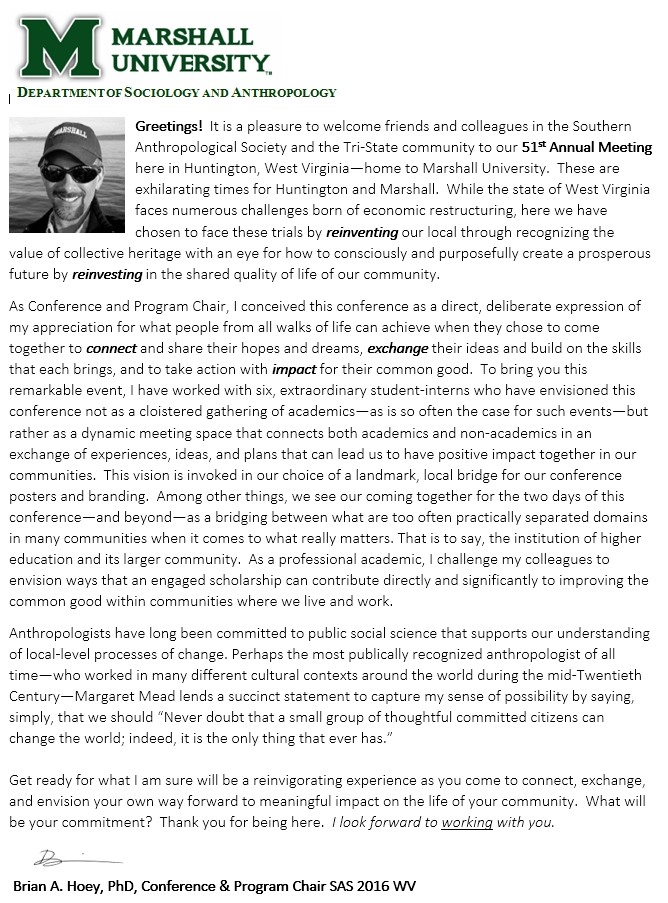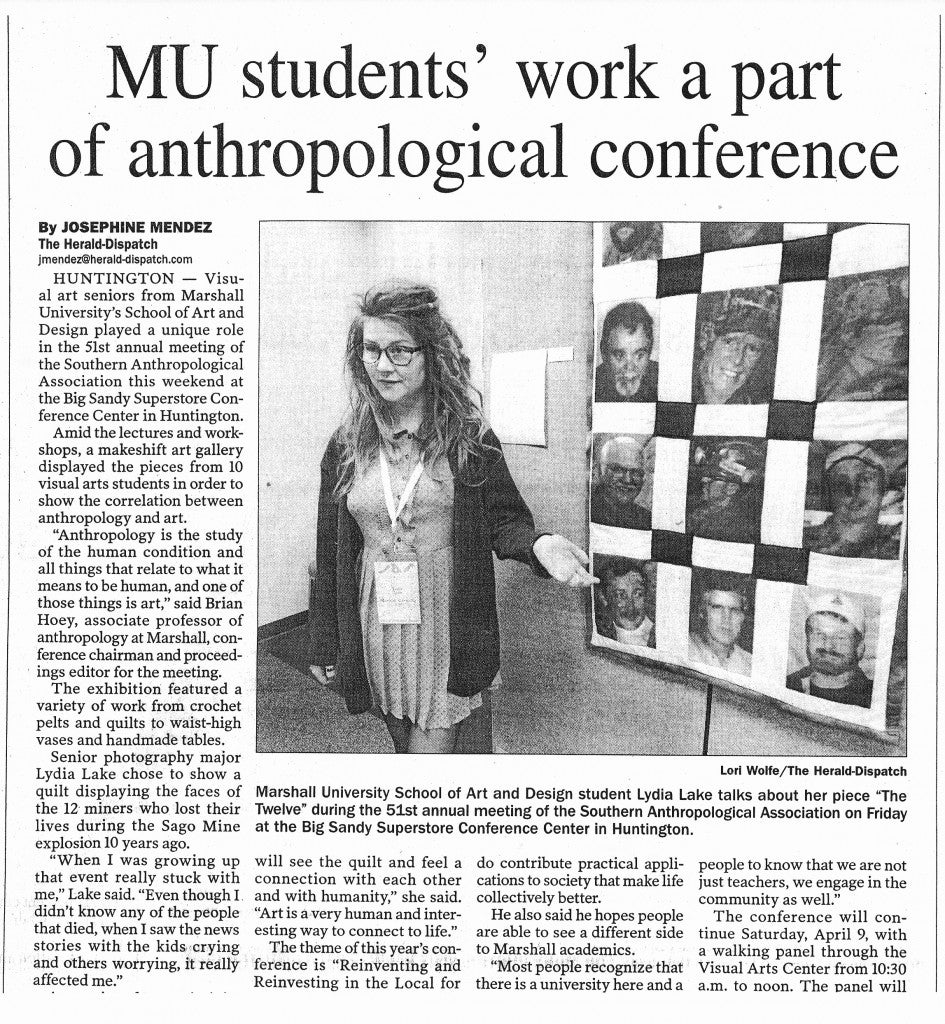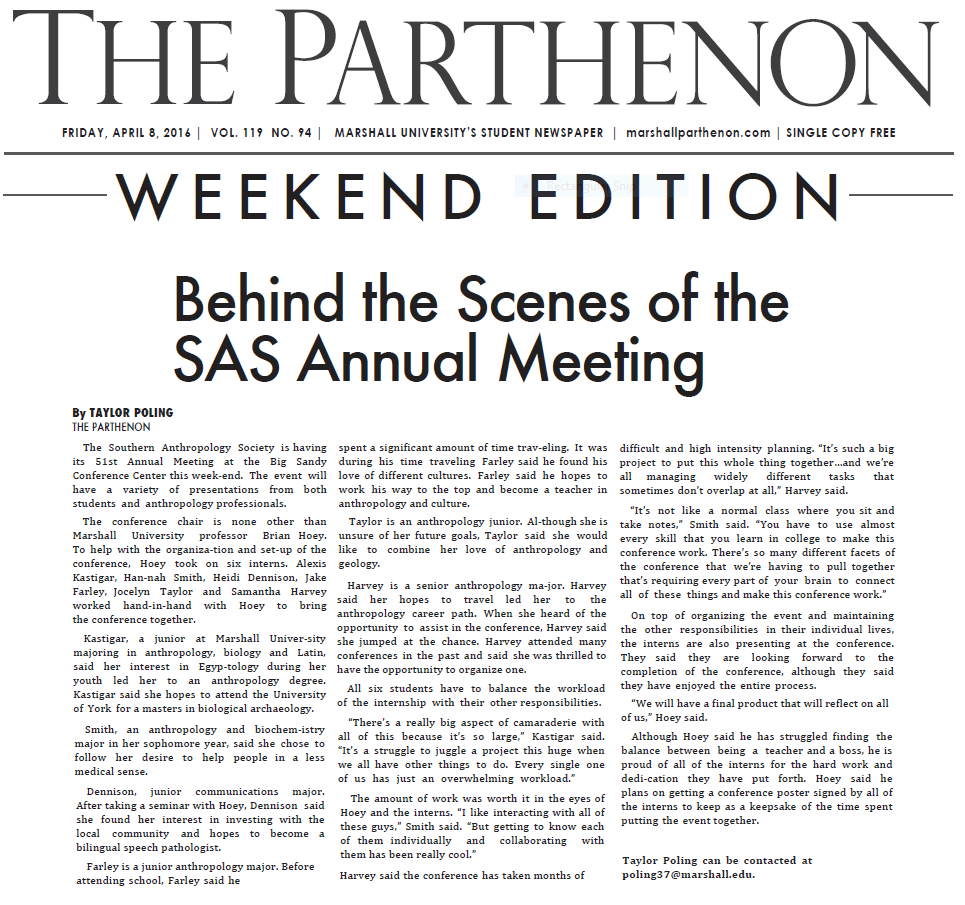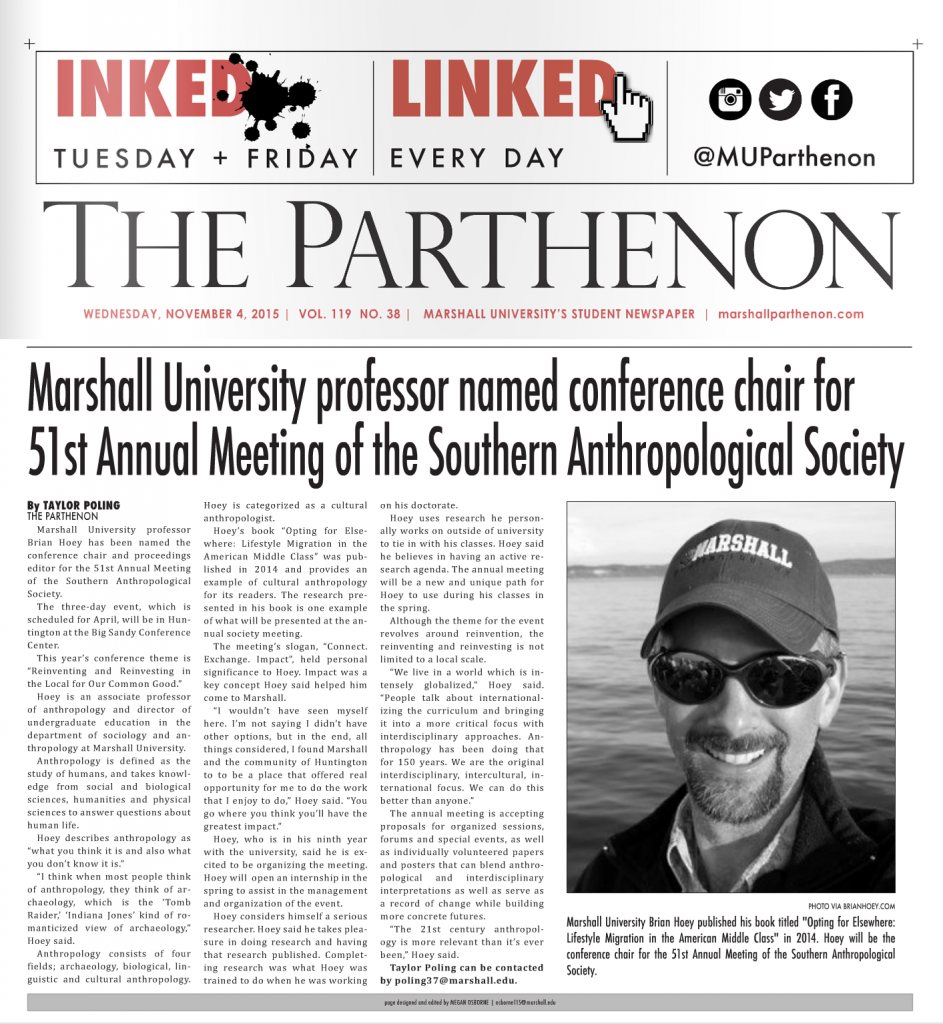In April 2016, Dr. Brian A. Hoey welcomed the Southern Anthropological Association to Huntington, West Virginia for their annual meetings and conference. This page is an archive of material and links for that landmark event.
Serving as the Conference and Program Chair, Dr. Hoey set the orienting theme for the 51st Annual Meeting of the Southern Anthropological Society to be publicly engaged, locally committed social science to bring together a variety of inter-disciplinary and non-academic interpretations to document processes of change at the local level, and imagine possible, resilient futures for the people and places where we live and work.
Hoey envisioned a dynamic meeting space connecting both academics and non-academics in an exchange of experiences, ideas, and plans leading us to have positive impact together in our communities for the common good.
Beginning at least since the period of post-WW II reconstruction wherein a modern sense of the term “development” emerged in the specific context of international aid, anthropologists have engaged—not always enthusiastically—in both conceptualizing the processes and variously attempting to use their grounded means of knowledge construction to propose actions that might mitigate the effects of globalization at the level of the local. In answering challenges to their practice as well as to their communities of study during the twentieth century’s second half, anthropologists built on an earlier, but inconsistent disciplinary practice of broad contextualization achieved through tracing layers of history and political economy in the setting of multidimensional global flows together with a commitment to comparative analysis between fieldwork sites. Out of the intellectual tumult of a parallel reflexive turn within the social sciences as well as both new and old sources of cultural, social, and economic turmoil on the streets outside academe, anthropologists today have come to reassess the local itself as a meaningful domain as well as their engagement with it from the scalable context of a global perspective.
Anthropologists have come to passionately commit not only to providing holistic, multi-factorial attention to communities where they have built working relationships as a foundation to their methods, as expected objects of study, and as authentic expressions of their humanity but also detailing spatial and temporal connections of cause and effect between these places and broader contexts with the increasingly common goal of advancing social justice through publicly-engaged scholarship. While anthropologists and other social scientists rethink their connections to places and people at the intimate end of the scale, the local has been busy too. People for whom the local is humbly that place experienced as “home” are themselves engaged in individual and collective attempts to address their vulnerabilities in relation to increasingly fluid transfers of power between what only analytically appear as distinct levels of “local” and “global.” Today, both working (in the fieldwork sense) and living (in the everyday sense) in communities that are at times the victim and at others the beneficiary of these seemingly mercurial flows, as public intellectuals we have a social responsibility to build on our avowed disciplinary traditions of collaboration to work together—within and outside our profession—to shape diverse and sustainable arrangements that our data suggest will improve the common good now and for the future.
Orienting Questions for Theme
- How do we go about theorizing “the local”?
- How might we connect dynamic world history to our contemporary impulses for doing public social science locally? What can we learn from earlier work in this vein?
- While earnestly valuing “local knowledge,” have we tended to seek this only within certain groups—sidestepping those who are closest to our own life-worlds?
- To what extent is an historical detachment between academic and applied social science reconciled in public engagement through local action by social scientists working in partnership with their communities?
- What kinds of collaboration should we be forging between institutions of higher education and their communities in order to create opportunities for meaningful, prosperous work and good quality of life for all?
- How can we engage in the serious work of retooling our traditional anthropological and other pedagogies through real and sustained attention to doing research locally?
Student Interns Helped Make it Happen
Throughout that busy semester, Heidi Dennison, Jake Farley, Samantha Harvey, Alexis Kastigar, Hannah Smith, and Jocelyn Taylor had an in-depth, “behind the scenes” experience learning how to host an academic conference. In addition to conference planning, five students organized their own paper session and presented their individual research projects. The sixth student created a multi-media ethnographic storytelling project, which you can learn more about in a separate film. They were all, in fact, completely involved in the conference as both planners and participants. This film serves as lasting documentation of their work as well as both a retrospective “report” on their experience in the internship and prospective reflection on where they plan to go from here. It is not only a story of Huntington but also a narrative of six students reinventing and reinvesting in their local.
Archived Conference Information
SAS2016WV Conference website http://mds.marshall.edu/sas_conference/2016 for detailed information on the conference. Download the complete Conference Program in PDF.
Hoey’s Welcome Letter

Selected Local News Reports
Herald-Dispatch (Huntington, WV) on 08 April 2016


